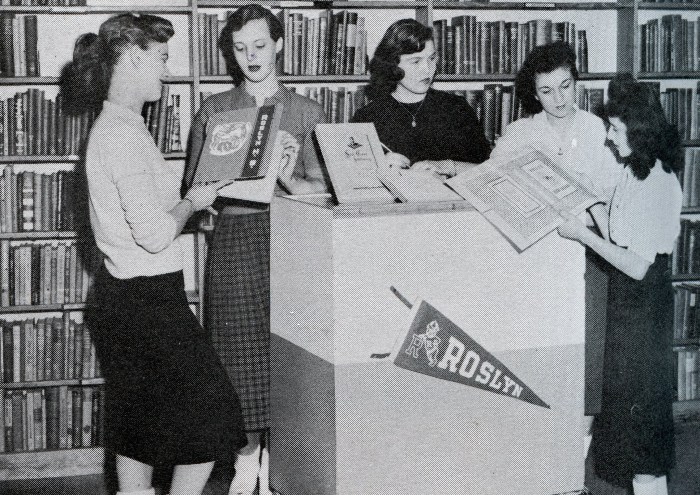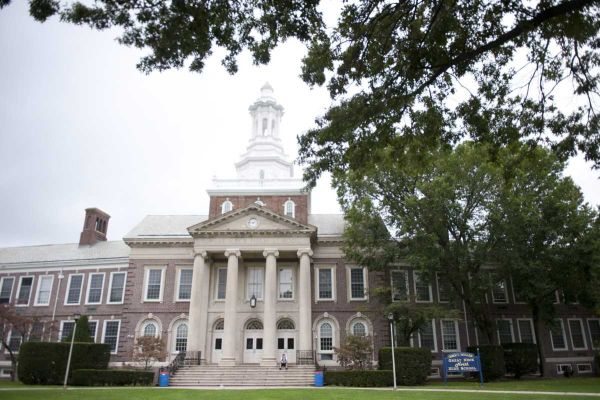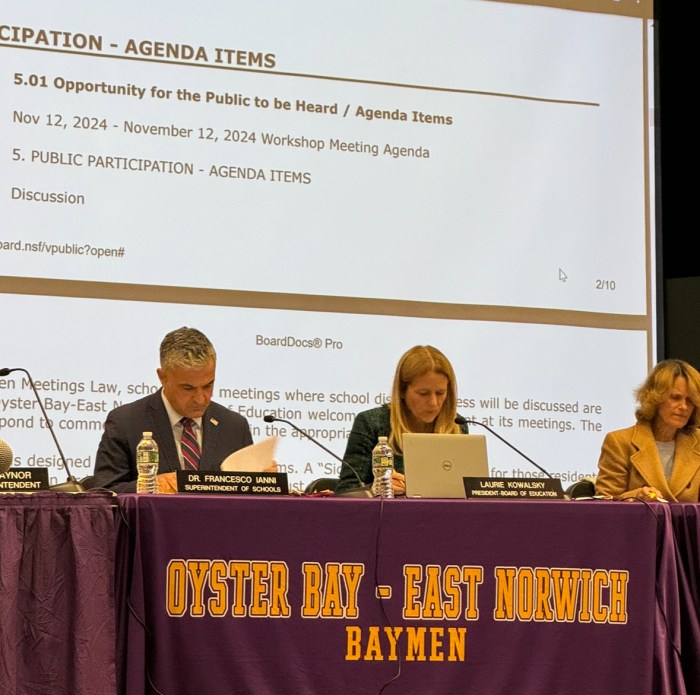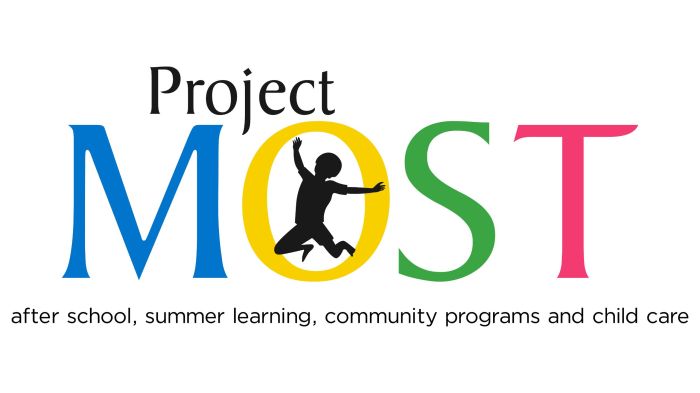Westbury School District voters will head to the polls on May 16 to vote for a $145,295,800 budget that has a 1.97 percent tax levy.
Interim superintendent of schools Eudes Budhai said that having a budget at a 1.97 percent tax levy allows the district to meet its five-year projection, rebuild some of their fund balance and also do capital improvement projects. The budget proposes pulling $10 million from the appropriated fund balance, down from an earlier projection of $14.4 million thanks to an increase in state aid.
“Use of the fund balance at this point in time gives us the opportunity to maintain that five-year projection moving forward,” Budhai said. “Our goal is to make sure we can sustain our budget for the next five years with the fund balance. If we went to a 1.26 or 0 percent budget, that five-year projection would look very different. We wouldn’t be able to sustain it.”
One of the biggest factors in the budget is accommodating for growing student enrollment. During a budget presentation on April 20, Budhai said that the school district anticipates 134 additional students over the 2017-18 school year. There will be 96 more students in the middle school this year, with the difference between students leaving eighth grade and entering sixth grade projected at 77 students.
The budget includes the addition of 18.3 instructional personnel, including instructional positions at the middle school and six district-wide security aides.
“The area where we have the highest number of teachers hired is going to be for the middle school. Students leaving the middle school are less than the students entering into sixth grade. That’s where you have the bulk of the students coming in,” Budhai said.
The high school is projected to receive an increase of 138 students, this includes approximately 30 overage under-credited students.
The budget also includes $20,000 to install cameras on school buses, as well as $375,000 for classroom renovations, including ventilators, flooring, ceiling and heating and high school laboratories. Some of those classroom renovations will be offset by a grant from the office of Senator Elaine Phillips.
With the 1.97 tax levy, a home with a market value of $304,475 would have an estimated daily tax increase cost of 57 cents.
If the budget is rejected by voters, the new budget would be $143,616,938, and would still include a small increase for taxpayers, said Budhai.
The budget was scheduled to be adopted during the Thursday, April 20, meeting of the board of education, however, after questions were raised over the validity of the enrollment project data, a special meeting was called for Friday, April 21, so administration could take another look at the numbers. Three votes were taken that evening: for a zero, 1.26 and 1.97 percent tax levy.
The 1.97 percent tax levy was approved with a 4-3 vote, with board vice president Stanton Brown and trustees Sherley Cadet, Pedro Quintanilla and Karin Campbell approving the budget and board president Robin Bolling and trustees Pless Dickerson and John Simpkins voting against. Those minority board members voted yes to approve a zero percent tax levy, which was not approved by the members of the majority. All the trustees voted no for the 1.26 percent tax levy.
Dickerson said his vote was motivated by the recent forced retirement of Superintendent Dr. Mary Lagnado, and didn’t believe the taxpayers should have to bear increased taxes.
“Based on what transpired in the case of the superintendent, I said no to the 1.97. Had it not been the case and if Lagnado was still in her position and presenting [the 1.97], I would have said yes,” Dickerson said, adding that he was conflicted by not wanting to burden taxpayers, but still wanting to meet the needs of students. “While I don’t agree with the tax levy, I don’t want to appear that I’m not supportive of the district and what is needed. There’s a dichotomy here.”
Brown said the 1.97 percent tax levy increase is in line with what the district has done in the past five years.
“It’s the same methodology of staying below the allowable state tax cap and maintains what Dr. Lagnado had been doing over the last five years, to be able to continue building the unrestricted fund balance,” said Brown, noting that according to Newsday, Lagnado had originally suggested a 2.3 percent tax levy. “With a zero budget, you would not have been able to continue doing what Lagnado would have wanted us to do, you would have been unable to fund operations.”































